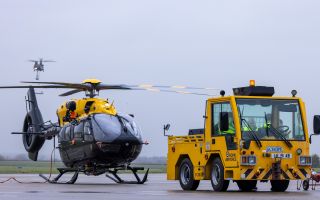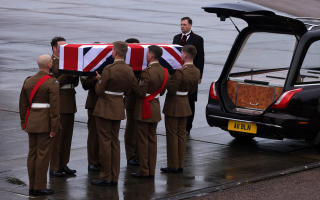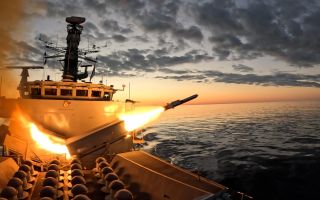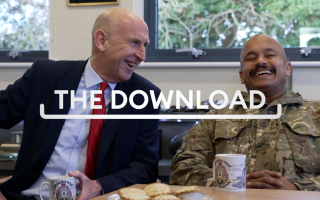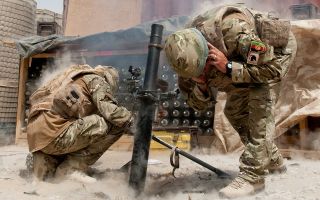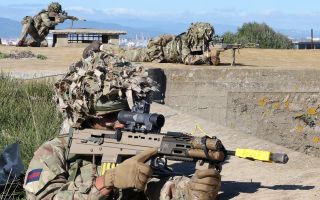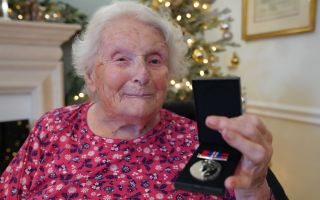
Tri-Service
Analysis: How To Interrogate A Defecting North Korean General

Article by Christopher Lee, Defence Analyst
US interrogators have been 'working over' a North Korean general. No water boarding, no white sound, no hooding. No extraordinary rendition - this one was a walk-in, a two-star North Korean general who defected from his Dear Leader last year.
The word in Washington and Seoul is unanimous. The man is no 'has-been' looking for a never empty rice bowl. On the day he jumped the general was Head of Overseas Intelligence Gathering for North Korea's General Bureau of Reconnaissance. He was the officer who signed off spy operations against South Korea including the capabilities of US forces stationed on the peninsula.
So, what have the interrogations produced? There are four main phases of interrogation for the two-star:
Firstly he needs checking out. Is he who he says he is? Why has he come over? It has to be understood that this man did not simply climb over the fence one dark and stormy night. Why now? Why not before? Why not next year? It took a lot of planning, nerve and a need for reassurances before he jumped.
Was his move pure Le Carre? Did he come in from his northern cold? Who were his handlers? What promises of protection and comfort were made?
Secondly, the first phase of practical interrogation is tactical questioning. His interrogators, South Korean and American, started list building. Names of senior people, their jobs, what they working on.
Crucially, he has handed over a list of all the North Korean spies, and wiring diagrams of spying operations by his people, in South Korea.
The general has also given what he thinks he knows about key tactical plans by North Korea: test firings, power demonstrations, readiness states of forces, senior personnel changes. This phase is on-going.
The general is now having to do a daily 'reading' of the North: What does this action mean? Who is this person we have not seen before? Etc.
The third stage is strategic intelligence. For example, he has been asked about Kim's personal standing among senior generals - thus what chance a palace revolution?
The longer look interrogation has included power levels of general officers, the state of mind of The Dear Leader, military capababilities and matching intentions (if any known) plus the all-important routines of the North Korean elite - Kim is not the only authority in the state.
The interrogators have established and in some cases confirmed what they were not sure about and raised questions about what they thought was true.
Who meets, when they meet, under whose chairmanship and to whom they report has two-fold significance: it suggests power levels and confirms patterns that are indicators of events about to happen.
The key question on the interrogation list could not, it seems, be answered with any certainty. The general revealed information and provided confirmations about what is going on in North Korea. However, although he said what he believes about capabilities, he could not get far with the intentions of Kim Jong-un. Put simply, he said that 'this is what the leader has' but 'I've no idea what he intends to do with it'.
There has apparently been an important uncertainty in the interrogation. Officers have had to spend time deconstructing the answers from the general. There has been a suspicion that sometimes he simply told the Americans what he thought they wanted to hear - to make himself more important.
The two main assets the general has brought south are one practical, and two theoretical: He has given the South Koreans and the Americans the names and operations of North Korean spying operations and plans. He has also given his thinking on what the US has long believed to be the only practical solution beyond warfare to relations with North Korea: the possibility of a revolution.
We have the answer to the last question: If there was chance of a palace revolution and the replacement of Kim Jong-un by his own people, then why would the general have defected?
Moreover it is understood that he feared his loyalties were being questioned, whatever that may mean under a dictator, and that would mean execution. However that is read, the Americans are assuming the Dear Leader is there for the long term.
They now need the general to give a running explanation of every move from now on. British Intelligence will nod to that one. It is a game they too have played.
In 1985 a Soviet KGB colonel Oleg Gordievsky who had worked for British Intelligence was brought back to the UK. He spent the years after that telling British governments, including that of Margaret Thatcher, exactly what the USSR was up to.
Taken as precedent, that should be a comfortable day job for the two-star general.
For more Insight and Analysis of the big issues in global defence tune in the Sitrep on BFBS every Thursday evening on DAB or download the podcast for iOS or Android.

